Especially in the rural parts of Ghana, there are still superstitions and misunderstandings that lead to women being accused of witchcraft and banished to “witch camps.” The women affected by this are mostly powerless and marginalized, so their case has been taken up by human rights campaigns within Ghana and from outside the country. Her colleague, Kwadwo Okrah, was born in Ghana and was already there conducting his own research, and the two of them collaborated throughout Tetzlaff’s Fulbright semesters.
For the first semester, Tetzlaff team-taught six courses at the university. The second semester was largely spent in rural regions. City life in Accra was a far more urban experience than South Bend is, but the remote countryside was much the opposite.
Hannah was five years old at the time, and she was enrolled at the German Swiss International School in Accra, studying alongside children from all over the world. The blog posts are regularly enlivened by Hannah’s activities such as learning Ghanaian children’s games and teaching the other kids how to play duck-duck-goose.
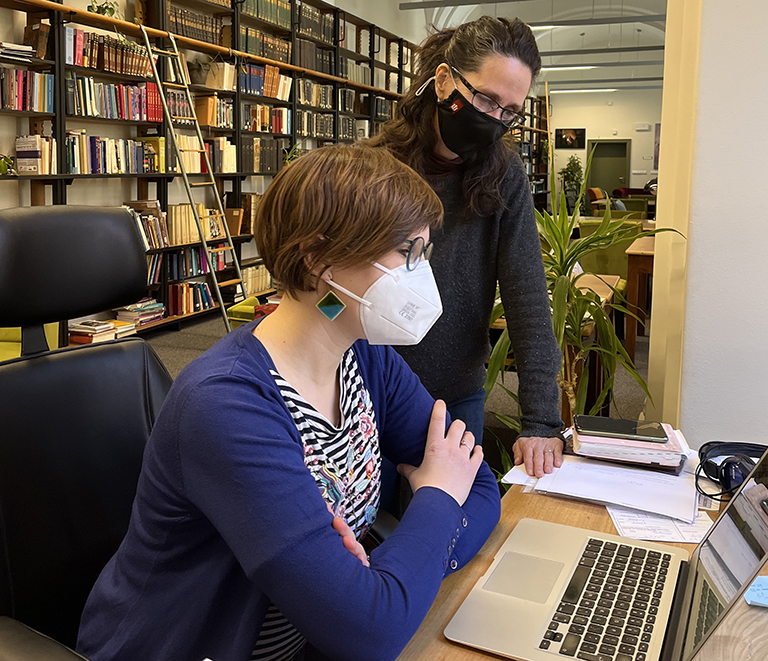 In a May 2015 wrap-up lecture, Tetzlaff compared civil rights activism in the United States with similar efforts in Ghana, emphasizing that positive change comes about through a combination of grass-roots movements and meaningful legislation. It all ties in with Senator Fulbright’s original vision of the scholars being essentially peace ambassadors.
In a May 2015 wrap-up lecture, Tetzlaff compared civil rights activism in the United States with similar efforts in Ghana, emphasizing that positive change comes about through a combination of grass-roots movements and meaningful legislation. It all ties in with Senator Fulbright’s original vision of the scholars being essentially peace ambassadors.
“I think it is about peace, and the more we understand each other – our commonalities as well as our differences – it reduces the fear,” Tetzlaff said. “Having these kinds of relationships leads to less fear and therefore less tendency towards war.”
Fulbright scholarships lead to a deep immersion in another culture, something Tetzlaff emphasizes as a crucial dimension to the program’s power.
“You can’t learn to really understand a culture on just a little research trip,” she said.
History professor Lisa Fetheringill Zwicker went to Poland for her 2020-21 research Fulbright. She did not have teaching responsibilities and focused instead on studying the burgeoning women’s movement in Germany and Poland in the 19th century, specifically in the city of Wroclaw (called Breslau in German.) The project was titled, “Breaking Through Barriers: Breslau’s Jewish Women Leaders.”
Zwicker identified a microcosm of the women’s movement in the case of a Jewish woman named Lina Bauer Morgenstern and her four sisters. They were able to overcome societally embedded sexism and antisemitism and rose to positions of prominence.
Zwicker is currently writing a book about the Bauers, called Lina and Her Sisters, the Bauers from Breslau: Jewish Women Navigating Love, Marriage, and the Women’s Movement in the Long Nineteenth Century.
In addition to her main topic of focus, Zwicker still had South Bend in her thoughts. After visiting the city of Lodz, Zwicker pointed out in her blog some of the similarities between Lodz and South Bend, both of which have a rich industrial history and a subsequent decline. Zwicker pondered what South Bend might emulate about the way Lodz has reinvented some of its public spaces.
“I tried to use those blog posts as ways to think about comparisons with the United States,” she said.
In Lodz, Zwicker admired the Manufaktura, a stylish shopping mall and arts center which is the product of a creative reimagining of former factory space. Seeing what an impact could be reaped from a combination of public and private investment in such a project, she wrote that “...South Bend’s Studebaker buildings are just waiting.”
She saw similar successes in Wroclaw, and she wished that Americans could embrace more of a willingness to invest in public spaces. Zwicker was also struck by the proliferation of paintings, sculptures, and murals that enliven the university’s visual aesthetic.
“These valuable artworks are in public spaces, even though that means that they could potentially be stolen or vandalized,” Zwicker said.
Zwicker’s thought process is a fitting example of how the Fulbright program is a win-win proposition. IU South Bend’s scholars bring their expertise to a host school and then come back to South Bend with newly acquired skills in empirical research that can be helpful here at the home campus. They have left their mark on the curriculum of a university far away and they employ what they’ve learned abroad in ways that improve the curriculum at home.
---
To read more about some of our Fulbright Scholar’s travels check out the blogs of Lisa Zwicker, Rebecca Torstrick, and Monica Tetzlaff below:
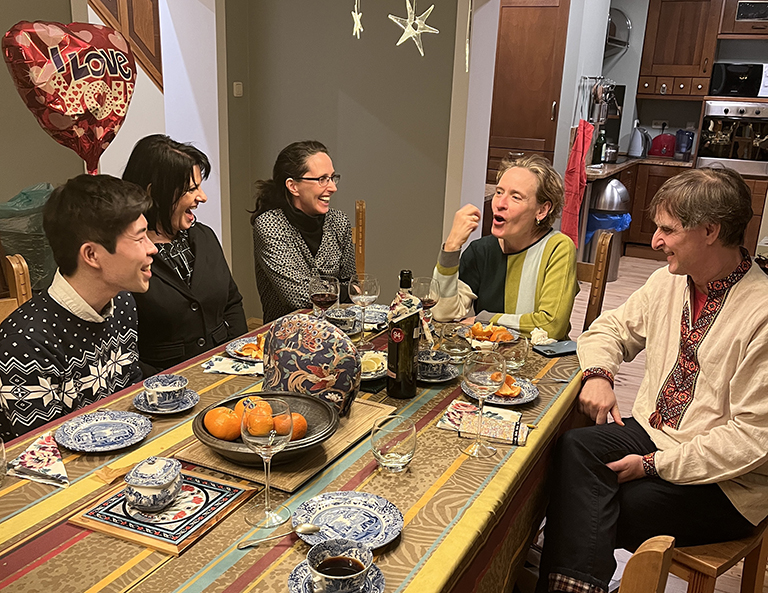 from its ranks in the ensuing years. Most recently, English professor Elaine Roth secured a Fulbright that sent her to Mexico City in the Spring of 2023. Roth has the additional distinction of being the only faculty member to earn the honor twice.
from its ranks in the ensuing years. Most recently, English professor Elaine Roth secured a Fulbright that sent her to Mexico City in the Spring of 2023. Roth has the additional distinction of being the only faculty member to earn the honor twice.


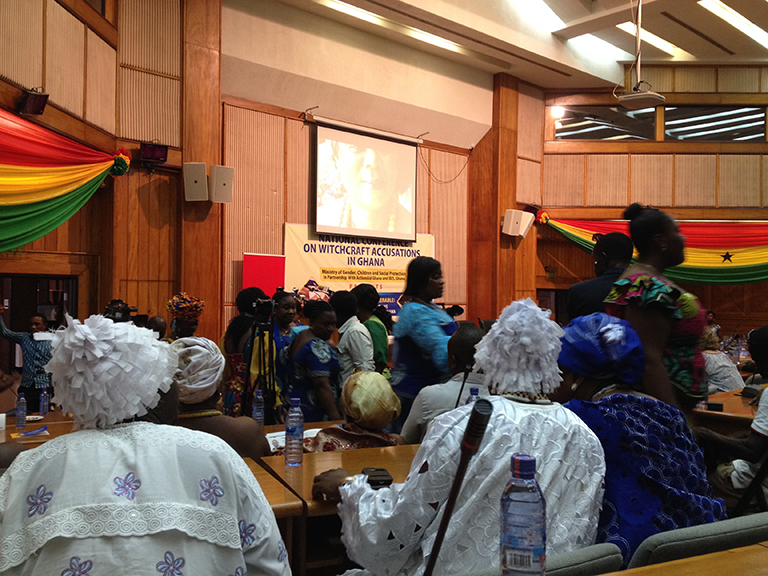 to this.
to this.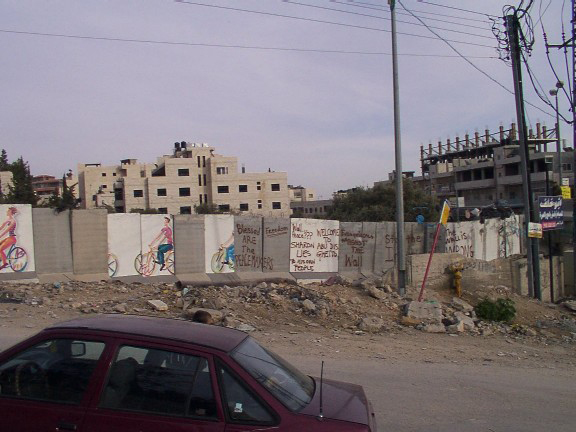 things like the huge separation fence near Jerusalem made a deep impression on them both. A recurring theme for Torstrick was imagining what people back home would think of such living conditions. She regularly questioned what residents would do if South Bend had a wall through it, limiting basic services to only preferred members of society.
things like the huge separation fence near Jerusalem made a deep impression on them both. A recurring theme for Torstrick was imagining what people back home would think of such living conditions. She regularly questioned what residents would do if South Bend had a wall through it, limiting basic services to only preferred members of society.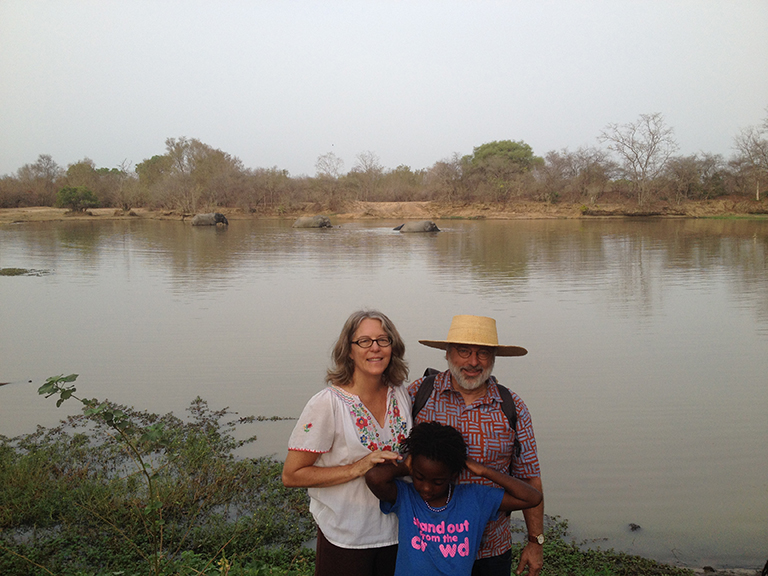 Joseph Chaney’s involvement with Fulbright has also extended beyond his initial stint, as he continues to serve as Fulbright’s official IU South Bend representative. In 2009-10, Chaney, an English professor, worked at the Chinese University of Hong Kong, but he was not just there to teach a class.
Joseph Chaney’s involvement with Fulbright has also extended beyond his initial stint, as he continues to serve as Fulbright’s official IU South Bend representative. In 2009-10, Chaney, an English professor, worked at the Chinese University of Hong Kong, but he was not just there to teach a class.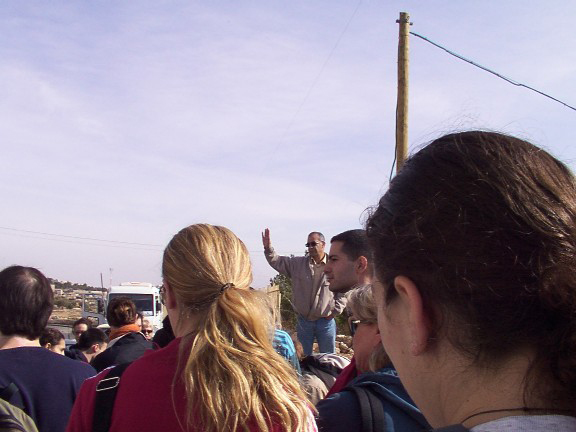 American-style class discussions. Roth taught a large survey class for undergraduates and another, smaller course for graduate students. Both were on the topic of American literature and cinema. She kept some of the curriculum she uses for similar classes in America but tailored some of the content specifically for her Spanish pupils.
American-style class discussions. Roth taught a large survey class for undergraduates and another, smaller course for graduate students. Both were on the topic of American literature and cinema. She kept some of the curriculum she uses for similar classes in America but tailored some of the content specifically for her Spanish pupils. In a May 2015 wrap-up lecture, Tetzlaff compared civil rights activism in the United States with similar efforts in Ghana, emphasizing that positive change comes about through a combination of grass-roots movements and meaningful legislation. It all ties in with Senator Fulbright’s original vision of the scholars being essentially peace ambassadors.
In a May 2015 wrap-up lecture, Tetzlaff compared civil rights activism in the United States with similar efforts in Ghana, emphasizing that positive change comes about through a combination of grass-roots movements and meaningful legislation. It all ties in with Senator Fulbright’s original vision of the scholars being essentially peace ambassadors.